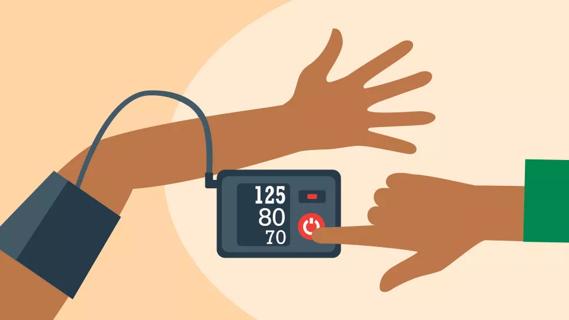The short answer from a cardiologist

A: People often ask whether so-called white coat syndrome is anything to be worried about. This is a phenomenon where people have a higher-than-normal blood pressure reading when they are at their healthcare provider’s office, while their blood pressure is normal outside of a healthcare setting.
Advertisement
Cleveland Clinic is a non-profit academic medical center. Advertising on our site helps support our mission. We do not endorse non-Cleveland Clinic products or services. Policy
While this pattern was once thought to be relatively benign, it actually is not. Most people whose blood pressure rises in the presence of a healthcare provider experience higher blood pressure under other forms of stress, too. Studies have found that people with this condition have a higher risk of heart attack and stroke than people whose blood pressure is normal when they visit their provider.
These patients need to be followed more closely and ensure that out-of-office blood pressure monitoring is performed on a semi-regular basis. Out-of-office monitoring will ensure that home blood pressures remain low and patients do not transition to elevated blood pressures at home and in the healthcare setting.
— Preventive cardiologist Luke Laffin, MD
To hear more from Dr. Laffin on hypertension, listen to the Health Essentials Podcast episode “Combating High Blood Pressure.” New episodes of the Health Essentials Podcast publish every Wednesday.
Advertisement
Learn more about our editorial process.
Advertisement

Elevate your BP by lying down, drinking water or cooling off

Daily stressors can increase BP in the moment, as well as contribute to habits that can feed long-term hypertension

Moderation is best when consuming caffeinated drinks to avoid unhealthy spikes in BP

Medication, exercise and diet changes can all help

An ideal blood pressure is less than 120 mm Hg systolic and less than 80 mm Hg diastolic

While not magic elixirs, some drinks like beet juice and skim milk may help keep numbers down

Low blood pressure got you feeling down? Staying hydrated and wearing compression socks can help

Don’t believe the rumors about aspirin being a magic way to lower BP

Start having sex about 72 hours before ovulation, then at least every other day during your fertile window

Attachment theory suggests that your earliest relationships shape connections throughout your life

It isn’t a recognized mental health disorder, but research shows that problematic social media use can negatively affect your mental health, self-esteem and sleep